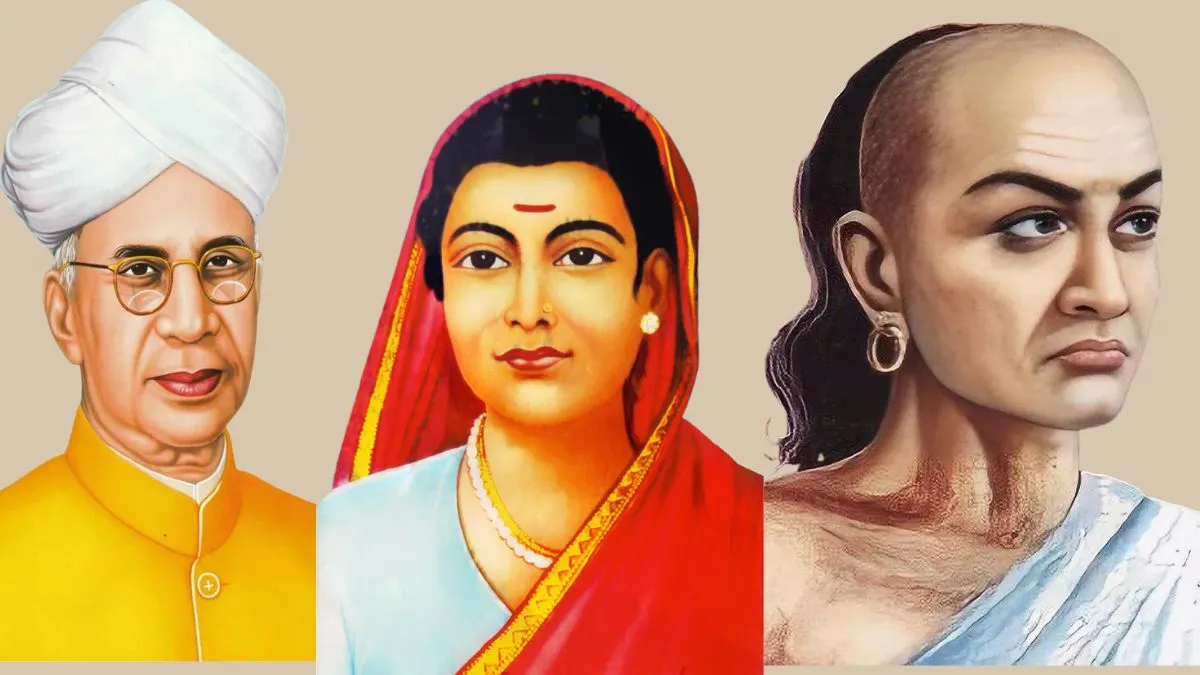New Delhi, India – Teachers are often called the architects of society — they shape young minds, build character, and lay the foundation for a brighter future. In India, educators hold a sacred place of respect and reverence, and the nation’s history is filled with remarkable individuals who have transformed lives through their teachings. From ancient philosophers to modern reformers, these teachers have not only imparted knowledge but also instilled values that continue to guide generations.
At the forefront of this legacy stands Dr. Sarvepalli Radhakrishnan (1888–1975), philosopher, scholar, and the second President of India. His deep belief in the transformative power of education made him a revered figure in academia. His birthday, 5 September, is now celebrated nationwide as Teacher’s Day — a tribute to his life’s work and impact. Radhakrishnan believed that books build bridges between cultures and that true happiness is rooted in knowledge and science.
Equally groundbreaking was Savitribai Phule (1821–1897), India’s first female teacher and a pioneer of women’s education. At a time when caste and gender discrimination were rampant, she established schools for girls from marginalised communities, laying the foundation for an inclusive education system. Her message was clear: education is a right, not a privilege, and empowerment begins in the classroom.
The wisdom of Chanakya (Kautilya) (4th Century BCE) still resonates today. As a strategist, philosopher, and author of Arthashastra, he taught governance, ethics, and diplomacy with unmatched clarity. His belief that “education is the best friend” captures the timeless importance of knowledge as a source of power and respect. Chanakya’s teachings on statecraft and leadership continue to influence political thought worldwide.
Modern India also owes much to visionaries like Madan Mohan Malviya (1861–1946), founder of Banaras Hindu University (BHU). He saw education as the key to both personal and national progress and championed fearlessness and humility as the cornerstones of learning. Similarly, Rabindranath Tagore (1861–1941), Nobel laureate and founder of Visva-Bharati University, revolutionised education by emphasising creativity, nature, and holistic development beyond the classroom.
Spiritual leaders like Swami Vivekananda (1863–1902) and Gautam Buddha (480–400 BCE) expanded the role of teachers beyond academics, inspiring millions with teachings on self-realisation, compassion, and inner strength. Their philosophies continue to shape ethical and spiritual discourse around the world. Meanwhile, Swami Dayananda Saraswati (1824–1883) reformed education by reviving Vedic knowledge and promoting social equality, and Munshi Premchand (1880–1936) used literature as a powerful medium for teaching values and raising social awareness.
No list would be complete without Dr. APJ Abdul Kalam (1931–2015), the “People’s President.” Beyond his contributions as a scientist and leader, he considered himself a teacher above all else. His passion for mentoring young minds, igniting curiosity, and promoting innovation continues to inspire students and educators across the globe.
From ancient thinkers to modern-day mentors, these educators embody the true spirit of teaching — not merely transmitting information but shaping the very fabric of society. Their teachings go beyond textbooks, guiding generations to think critically, act ethically, and dream without limits. Their legacy is a reminder that great teachers do more than teach — they change the world.






